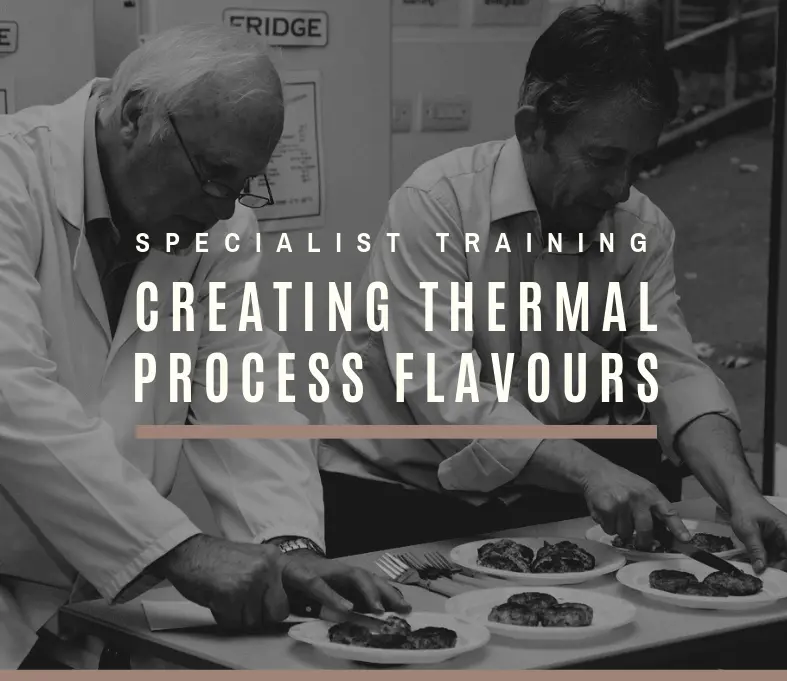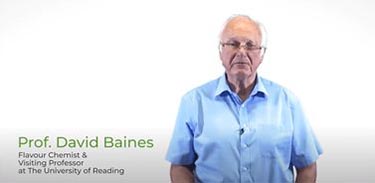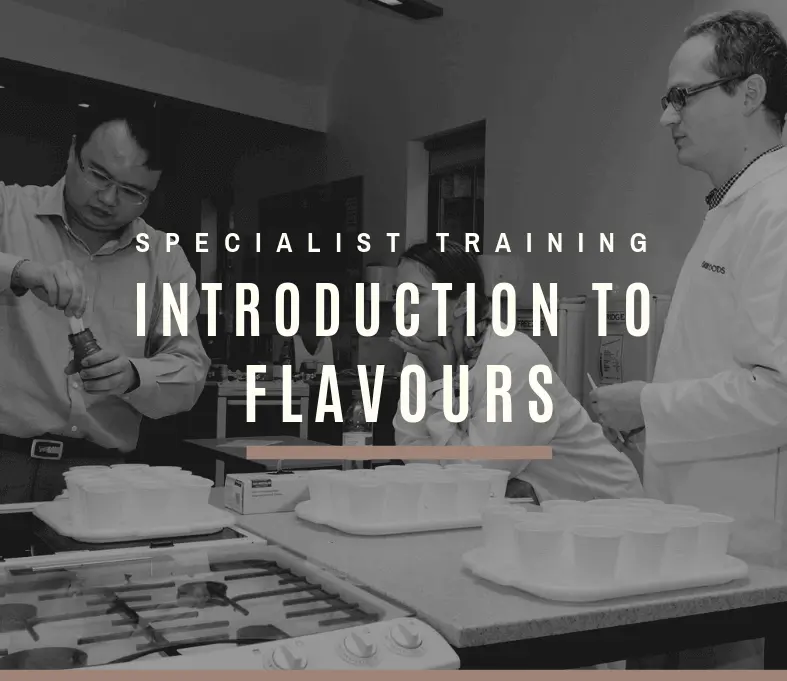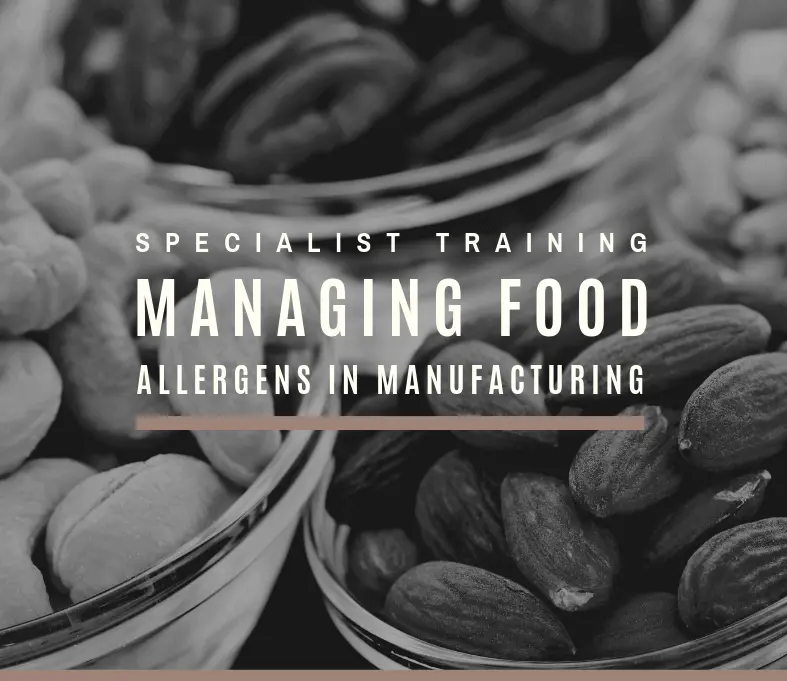
Creating Thermal Process Flavours Course
This intensive specialist course is aimed at those working in the flavour and seasoning industry, ready meals, snack foods and innovative restaurateurs
Course Fee
Course Description
A 5-day intensive specialist course for the food industry
This advanced laboratory-based course is specifically designed for professionals in the flavour and seasoning industry, ready meals, snack foods sector, and innovative culinary establishments. Participants will gain hands-on experience in creating thermal process flavours through Maillard reaction chemistry, enzyme-modified flavour development, and advanced sensory evaluation techniques. The course directly addresses industry demand for natural flavour solutions and plant-based protein enhancement.
Why Choose VWA for Thermal Process Flavours Training?
As the UK's leading food industry training provider, Verner Wheelock Associates offers the only comprehensive hands-on course in thermal process flavours. Our unique approach combines:
- World-class expertise: Led by Professor David Baines and Richard Seal, renowned experts in savoury flavour development
- Laboratory immersion: 5 days of intensive hands-on flavour creation and application
- Industry relevance: Direct application to current market demands including plant-based proteins
- International recognition: Delegates from leading global flavour companies including IFF, Firmenich, and Rai Ingredients
- Complete toolkit: Leave equipped to create your own savoury flavours immediately
Video Overview
The Essence of Meat Flavour - An excerpt from Creating Thermal Process Flavours |
The Importance of the Culinary Approach to the Creation of Thermal Reaction Flavours |
A Guide to the Science and Technology of Reaction Flavours
Delegates will have the freedom to create their own thermal process flavours which are then applied and evaluated in relevant foods.
Duration
5 days
Who Should Attend?
Those working in flavour, seasoning, snack and ready meal companies. Typical roles include Technical Projects and Sales Managers, R&D Technologists, Flavourists, Application and Product Development team members.
Entry Requirements
The course is intended for graduates working in NPD and flavour technology in the food, seasonings and flavour industries.The training is fast-paced, so although not essential, an understanding of flavour chemistry would be a distinct advantage.
Course Delivery / Format
Classroom
Delivered face to face at Craven College, Skipton, North Yorkshire UK.
Course Structure & Content
It will be very much a ‘hands-on’ course with laboratory sessions interspersed with lectures throughout the day. Candidates will develop and compound their own flavour systems during the course and will apply their creations to a range of food products.
| Course topics will include: |
|---|
|
| The course tutors are Professor David Baines and Mr Richard Seal, both experts in the field of savoury flavours. |
Learning Outcomes
This 5-day course will provide delegates with the following:
- The knowledge to develop a variety of thermal process meat flavours.
- The skill of evaluating a reaction flavour and changing it to create the desired flavour notes for the target market.
- An understanding of the principles governing the science, reaction and application of thermal process flavours.
- An understanding of the raw materials and process parameters used in the production of thermal process flavours such as beef, chicken, pork, lamb, roast, boiled, bouillon etc.
- The sensory methodology and descriptive language used in the evaluation of thermal process flavours.
- The application and evaluation of meat process flavours in various food products.
- An insight into the use of enzymes to generate ingredients for use in process flavours technology.
- An understanding of the legislation affecting thermal process flavours on a global basis
Delegates will leave the course armed with a savoury flavours toolkit and be capable of creating their own savoury flavours within their organisations on return to work.
Qualification / Assessment
No formal qualification but will receive a Verner Wheelock certificate of attendance
Course Fee
£3,900 +VAT
Course fee includes:
- Binder and course notes
- Lunch and refreshments throughout the course
- Thursday evening ‘course dinner’ and presentations
- Certificate of attendance
Accommodation and evening meals (except course dinner) are not included in the course fee, but rooms will be reserved for delegates at a local hotel for the Sunday night prior to the course until check-out on the Friday morning. We can also assist with airport transfers.
Places on this unique course are strictly limited
Course FAQ
This 5-day specialist course is an immersive experience that offers a deep dive into the world of flavours. It is particularly focused on thermal process flavours used in the food and seasoning industry. The course is updated annually and is laboratory-based, providing hands-on experience with process reaction flavours, enzyme-modified flavours, and topnotes. It aims to equip participants with the skills and knowledge to create and understand savoury flavours effectively.
This course is tailored for professionals working in various sectors of the food industry, including flavour and seasoning companies, ready meal producers, and snack food manufacturers. Typical attendees include Technical Projects and Sales Managers, R&D Technologists, Flavourists, and members of Application and Product Development teams. The course content is designed to benefit both newcomers and seasoned professionals in these roles.
While there are no strict formal entry requirements, the course is most beneficial for graduates working in New Product Development (NPD) and flavour technology. An understanding of basic chemistry can be advantageous for grasping the scientific aspects of the course but is not a mandatory prerequisite.
The course is conducted face-to-face at Craven College, Skipton, North Yorkshire, UK. It employs a blended learning approach, combining theoretical lectures with practical laboratory sessions. This hands-on experience allows participants to apply theoretical knowledge in real-time, thereby enhancing the learning experience.
The course is comprehensive, covering a wide array of topics related to thermal process flavours. These include the chemistry and application of the Maillard reaction, the use of enzymes to produce flavour precursors, and the legislation affecting thermal process flavours globally. Participants will also engage in hands-on laboratory sessions where they will create red and white meat flavours.
While the course does not lead to a formal qualification, participants will undergo a short test to evaluate their understanding of the course material. Successful attendees will receive a Verner Wheelock certificate of attendance, which serves as a testament to their newly acquired skills and knowledge in the field of thermal process flavours.
The course fee is £3,900 +VAT and is payable in advance. This fee covers a range of amenities including a course binder filled with relevant notes, lunch and refreshments throughout the course, and a certificate of attendance. Accommodation and evening meals are not included but assistance with reservations and airport transfers can be provided.
By the end of this 5-day course, participants will have gained a thorough understanding of the principles governing the science, reaction, and application of thermal process flavours. They will also acquire the skills to evaluate and apply these flavours in various food products, and will be equipped with a toolkit for creating their own savoury flavours.
The course is led by Professor David Baines and Mr. Richard Seal, both of whom are experts in the field of savoury flavours. Their combined expertise ensures a rich and informative learning experience for all participants.
While the course itself does not lead to a formal international qualification, the skills and knowledge imparted are universally applicable. The course is highly regarded within the industry and the certificate of attendance from Verner Wheelock is recognized as a mark of quality training.






